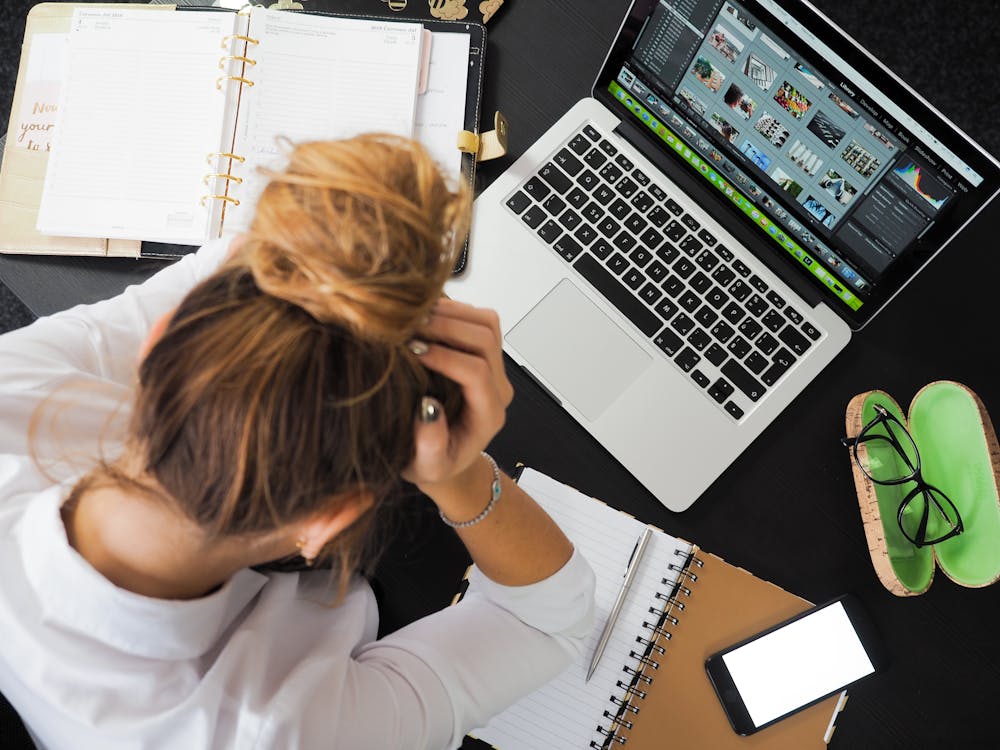7 Signs You Desperately Need A Mental Health Break

When the pandemic started, lockdowns were imposed all over the world. All of us were forced to stay at home. We continued to work, do school and do our responsibilities while still understanding the implications of the pandemic. This led to several mental health issues around the globe. According to the World Health Organization (2022), the pandemic led to a 25% increase in anxiety and depression cases around the world. We are getting on with our lives without recognizing that we need to take a step back. So, here are 7 signs you might need a mental health break.
Disclaimer: This article is for informational and educational purposes only and should not be used for any diagnosis. If you wish to seek proper diagnosis, kindly ask for professional help.

- You have difficulty concentrating.
Do you constantly ramble and forget tasks? It is normal for us to forget things once in a while. It is also normal for your minds to imagine and wander elsewhere. However, if this happens a lot more than usual then it could be a sign of a deeper problem. According to Dr. Hamill (2019), when you have too much on your plates, your minds tend to go into overdrive. When this happens, you won’t be able to focus and have difficulty solving problems as you may find it harder to look at the bigger picture. This might pose problems in the long run making it even harder for you to handle anything.
- You make impulsive decisions.
A study showed that court judges who have no breaks in a day usually give the easiest and most convenient judgment to parole hearings. This is why statistically, parole hearings that happened later in the day are usually not granted since “No” is the most convenient decision. (Danziger, Levav, & Avnaim-Pesso, 2011).This is also similar to when you have do not take breaks, you tend to give the most convenient decision. It is harder for you to think of the consequences of your actions when you have too much to handle. So, you make rash decisions without thinking of its possible, more serious complications.

- You are exhausted all the time (even after a good sleep).
Do you feel drained out of energy even after having a good long hours of sleep? Do you find your workout more difficult to finish? When you have a lot on your table, there is no doubt that you will be physically exhausted. However, this could extend to mental exhaustion. When your mind is in constant hustle, it will get to a point of exhaustion. when this happens, your mind will never truly settle that the sleep you get will never suffice the kind of rest you need.
- You develop unhealthy eating habits and changes in your sleeping pattern.
When you are under too much stress, your endocrine system overproduces hormones (Raypole & Santos-Longhurst, 2022).These hormones are crucial to your sleep and eating habits. More specifically, they make it difficult for you to sleep and shift your eating habits. This is the reason why some binge eat or eat less when they are under too much stress. Developing these new habits could lead to more difficult problems.

- You display negative emotions.
Notice a person who has been under too much pressure for some time. Did you notice any difference in their mood? A study showed that when people are subjected to stress, especially with low resources, they display negative emotions such as irritability and anger (Gordon & Mendes, 2021). A person who has too much to handle may display a change in mood overtime. The toll of the pressure and stress gets to you resulting in mental exhaustion and a highly active endocrine system. You become easily irritated and easily angered. You are constantly in a low mood. You also start to display cynical and negative thinking.
- You become withdrawn.
If you are buried in things to do, it will be hard for you to find time to socialize. However, in the long run, the burden of things will get to you and you start to voluntarily withdraw yourself from any socialization. You might find it difficult to interact with people or you simply do not have the energy to deal with them. Soon, your relationships might start to suffer which might lead you to isolate even more.

- You feel disconnected or detached from yourself.
When you have too much on your table, you might feel like you are losing a sense of you. There is a feeling of missing your “old self”. Because you have to handle a lot of things, you often forget about taking care of yourself (Lamill, 2019). You constantly find yourself zoning out wondering what’s happening with you. You do not enjoy the things you usually enjoy. And sometimes, you might feel detached from the environment and even from yourself. The fast-paced life limits your time, giving you little to no space to reflect on yourself.
Final Thought
All of us are doing our best with what we have. We get on with our lives because we are expected to move forward. But sometimes, moving forward can be too much for others. It is important to recognize your need to take a step back. It is not quitting. It is not giving up. Rather, it is giving yourself the time to process, reflect and heal. And maybe, stepping back could be the way to move forward.
Reference:
Danziger, S., Levav, J., & Avnaim-Pesso, L. (2011). Extraneous factors in judicial decisions. Proceedings of the National Academy of Sciences, 108(17), 6889–6892. https://doi.org/10.1073/pnas.1018033108
Gordon, A. M., & Mendes, W. B. (2021). A large-scale study of stress, emotions, and blood pressure in daily life using a digital platform. Proceedings of the National Academy of Sciences, 118(31). https://doi.org/10.1073/pnas.2105573118
Hamill, L. (2019, January 30). When to take a mental health break | for Better | US News. U.S. News. Retrieved July 6, 2022, from https://health.usnews.com/health-care/for-better/articles/2019-01-30/when-to-take-a-mental-health-break
Santos-Longhurst, A., & Raypole, C. (2022, March 31). Mental exhaustion: Definition, causes, symptoms, and treatment. Healthline. Retrieved July 6, 2022, from https://www.healthline.com/health/mental-exhaustion
World Health Organization. (2022, March 2). Covid-19 pandemic triggers 25% increase in prevalence of anxiety and depression worldwideWor. World Health Organization. Retrieved July 6, 2022, from https://www.who.int/news/item/02-03-2022-covid-19-pandemic-triggers-25-increase-in-prevalence-of-anxiety-and-depression-worldwide



Responses